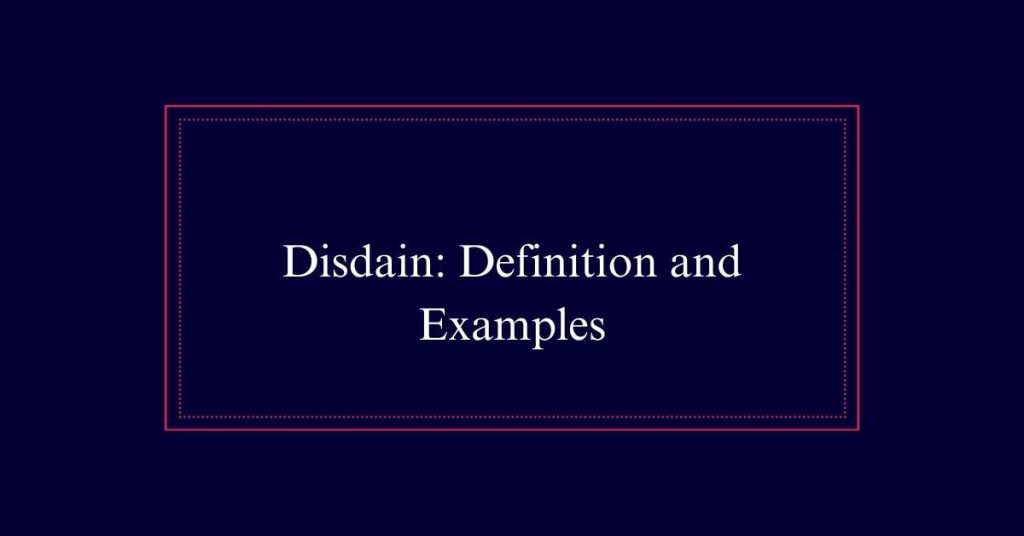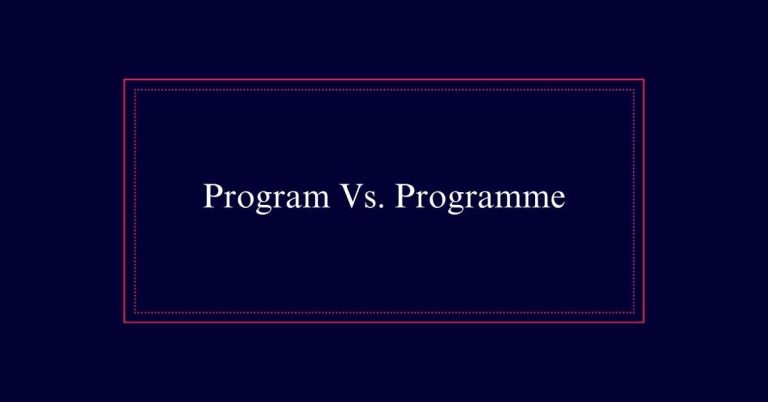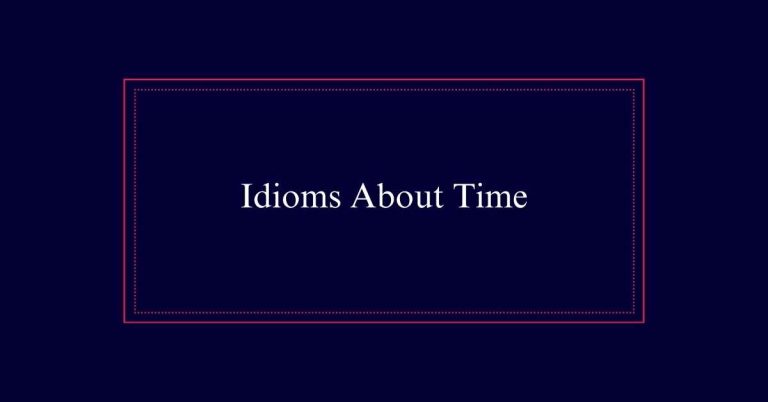Disdain: Definition and Examples
Disdain signifies a profound lack of respect accompanied by intense dislike. It suggests a judgmental stance and rejection of value. As a noun, it conveys contempt and scorn, often with a sense of superiority. Examples include dismissive looks or derogatory comments.
When used as a verb, it means actively showing disrespect or aversion through actions or words. Adjective and adverb forms, such as “disdainful” and “disdainfully,” describe or modify disdainful actions.
Understanding Disdain
Disdain, both as a noun and a verb, signifies a profound level of dislike and lack of respect towards someone or something. This powerful term denotes not just a mere disagreement but an active and often visible rejection of value or worth.
Derived from Latin roots, disdain implies a judgmental stance, often manifested through scornful looks or dismissive actions. Synonyms include contempt, scorn, and aversion, while antonyms encompass respect and admiration.
Misunderstandings sometimes arise with the archaic term ‘distain,’ which means to stain or sully. Disdain, however, remains consistent in its spelling and meaning.
Disdain as a Noun
The noun form of disdain conveys a profound sense of dislike and disrespect towards someone or something. It encapsulates a feeling of contempt or scorn, often accompanied by a sense of superiority.
This sentiment can be expressed through various means, such as dismissive looks, derogatory comments, or overt actions that underscore a lack of regard. Disdain is synonymous with terms like contempt, scorn, and derision, and stands in stark contrast to respect and admiration.
Its presence can lead to strained relationships and hinder effective communication. In literature and everyday interactions, the noun ‘disdain’ serves as a powerful descriptor of negative emotions that can disrupt harmony and mutual understanding.
Disdain as a Verb
Expressing disdain as a verb involves actively demonstrating a lack of respect or dislike towards someone or something. When one disdains another, they may show their contempt through actions, words, or even non-verbal gestures.
For example, a manager might disdain an employee’s suggestion by dismissively waving it off or by making a derogatory remark. Disdaining can also be subtle, such as avoiding eye contact or ignoring someone’s presence.
This active expression of disdain can lead to negative consequences in personal and professional relationships, fostering resentment and conflict.
Adjective and Adverb Forms
Moving from the active expression of disdain, it is important to explore how disdain manifests in its adjective and adverb forms. The adjective “disdainful” describes someone or something that shows disdain. For instance, a disdainful glance conveys a clear message of contempt. The adverb “disdainfully” modifies verbs to describe actions carried out with disdain, such as speaking disdainfully to indicate a tone of scorn.
| Form | Part of Speech | Example Sentence |
|---|---|---|
| Disdainful | Adjective | She gave a disdainful look. |
| Disdainfully | Adverb | He spoke disdainfully about the proposal. |
| Disdain | Noun | His disdain was evident in his remarks. |
| Disdain | Verb | She disdained the offer without hesitation. |
Expressions of Disdain
Expressions of disdain manifest through various verbal and non-verbal cues that communicate contempt and lack of respect.
Verbally, disdain can be conveyed through tone, sarcasm, and dismissive language. Phrases like ‘I can’t believe you think that’s important’ or ‘That’s beneath me’ are common examples.
Non-verbal cues include eye-rolling, sneering, and crossed arms, all of which signal disapproval and superiority. Body language, such as turning away or avoiding eye contact, further emphasizes the emotional distance and disregard.

Synonyms of Disdain
Recognizing the various expressions of disdain can be further enriched by understanding its numerous synonyms, which provide a nuanced perspective on this powerful emotion.
Disdain is often synonymous with contempt, reflecting a deep-seated sense of scorn and derision. Similarly, condescension implies a patronizing attitude, while aversion and antipathy denote strong feelings of dislike and opposition.
Each synonym captures a unique facet of disdain, highlighting the complexity of this sentiment. For instance, contempt emphasizes a profound disrespect, whereas condescension suggests a belittling superiority. Derision focuses on mocking and ridicule, and antipathy underscores an instinctive rejection.
Antonyms of Disdain
In contrast to disdain, esteem and admiration frequently represent positive expressions of regard and respect. Esteem involves high regard and value for someone or something, reflecting appreciation and honor.
Admiration denotes a sense of wonder and approval, often accompanied by respect and affection. These antonyms highlight the opposite end of the emotional spectrum from disdain, which is marked by contempt and lack of respect.
Other antonyms include respect, which signifies a deep sense of regard for someone’s qualities or achievements, and favor, which indicates approval and support. Such positive expressions foster healthy relationships, encourage cooperation, and build mutual trust, contrasting sharply with the negative implications of disdain.
Disdain Vs. Distain
While understanding the antonyms of disdain highlights positive expressions of regard, it is equally important to distinguish between the words ‘disdain’ and ‘distain.’ Disdain refers to a feeling of contempt or lack of respect, used both as a noun and a verb. It conveys a sense of superiority and scorn.
On the other hand, ‘distain’ is an archaic term that means to stain or discolor. Although phonetically similar, these words have entirely different meanings and usages. Disdain is commonly used in contemporary language to describe an attitude or behavior, whereas distain is rarely seen today.
Common Misspellings
Common misspellings of the word ‘disdain’ include variations such as ‘desdain’ and ‘disdane,’ which can lead to misunderstandings in communication. These errors often arise from phonetic confusion or typographical mistakes. A clear understanding of the correct spelling is important for effective written communication, especially in professional settings. Below is a table that highlights common misspellings and their corrections:
| Common Misspelling | Correct Spelling | Notes |
|---|---|---|
| Desdain | Disdain | Phonetic error |
| Disdane | Disdain | Typographical mistake |
| Distain | Disdain | Confusion with a different word |
Using Disdain in Sentences
Examples of how to use disdain in sentences can help clarify its meaning and application.
A political analyst might say, ‘The party leadership expressed disdain for the candidate’s progressive policies.’
In a workplace scenario, one might observe, ‘The manager’s disdain for tardiness was evident in her strict attendance policies.’
In literature, it could appear as, ‘The protagonist’s disdain for the corrupt society drove his actions.’
Personal interactions also reflect this, as in, ‘She looked at him with disdain after learning of his betrayal.’






